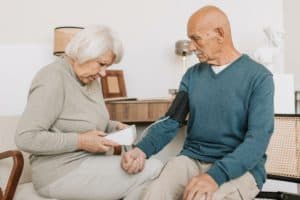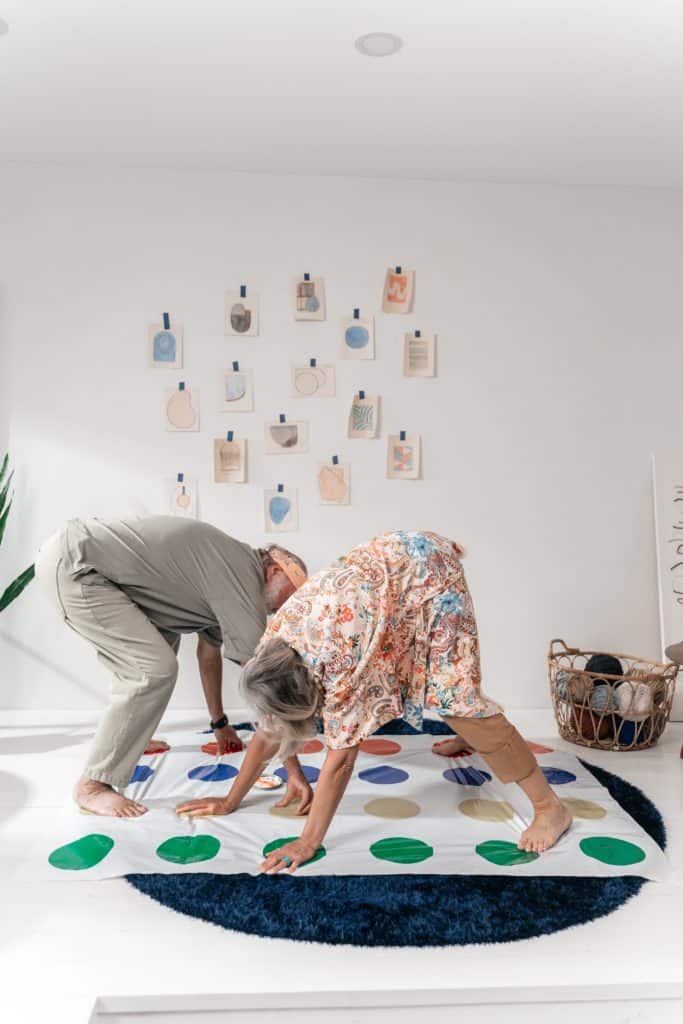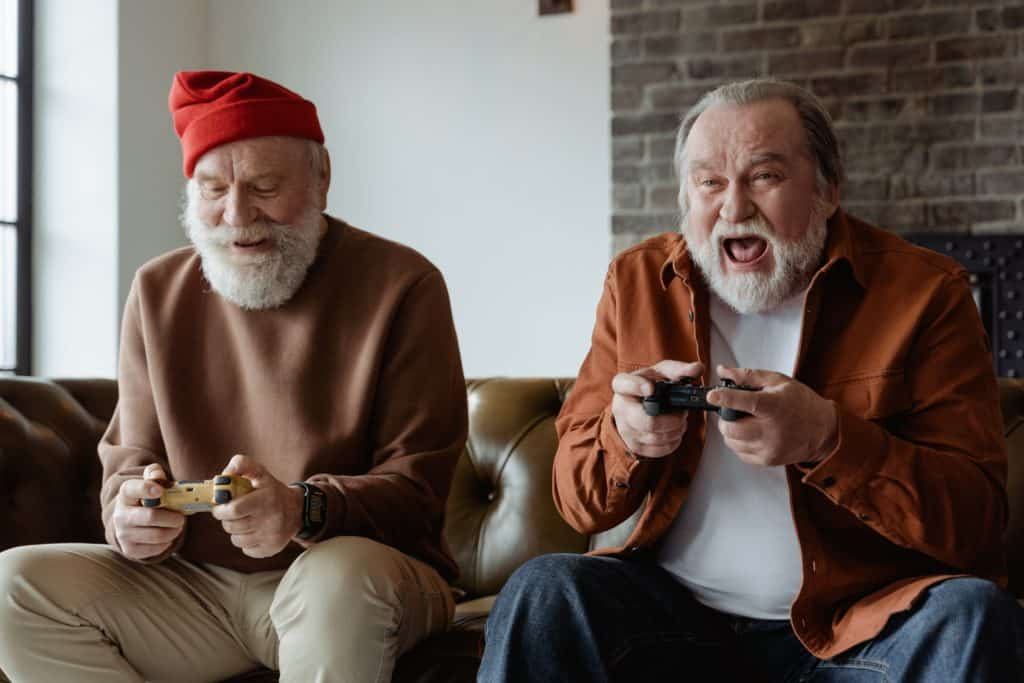
Most people have friends and relatives who have suffered from dementia, and many worry that they too will face cognitive problems as they age. Avoiding dementia and Alzheimer’s are key concerns for seniors: is it doable? Or is dementia inevitable for those who have the wrong DNA? Well, two of the major risk factors are age and genetics, and you can’t do anything about either. There are, however, other risk factors that you may be able to manage.
Dementia and Alzheimer’s
All Alzheimer’s is dementia, but not all dementia is Alzheimer’s. That’s because dementia is a blanket term used to describe significant cognitive decline. It eventually leads to an inability to remember, recognize people or deal with the tasks of daily living. Alzheimer’s is the most common form of dementia.
Because not every case of dementia is diagnosed or reported, estimates of its prevalence vary. However, most experts agree that about seven million Americans suffer from dementia. Because the population of seniors is rising, that number continues to rise as well. Interestingly, however, the percentage of seniors with dementia is declining slightly. Still, as many as 10 percent of Americans over 70 are afflicted with it.
Dementia is not a normal and inevitable part of aging. However, most seniors can expect to deal with mild cognitive decline. This comes in the form of not being able to remember names and forgetting where you put the car keys. People of all ages experience this to some degree, and it gets a little worse in older folks. It doesn’t necessarily mean they have dementia. It means that the brain ages like every other organ.
How To Reduce Dementia Risk
People who are physically, mentally and socially active seem to be a lower risk for dementia. Unfortunately, there’s a lack of rigorous studies that could result in researchers saying that some specific lifestyle changes will prevent serious cognitive decline. However, people who have observed older adults over time have noted behavioral factors that appear to be associated with whether or not seniors will suffer from dementia. These have to do with how mentally, physically and socially active a person remains as they age.
Mental Engagement 
Most observers are convinced that the more you use your mental faculties, the less likely you are to lose them. Activities could be anything from continuing to work full or part-time at a mentally challenging job to playing stimulating games such as bridge and chess.
You don’t have to push your brain to the brink to enjoy the benefits of mental activity. Board games, card games and puzzles are stimulating. There are numerous hobbies, from crafting to collecting, that can help maintain the cognitive edge. The older person who putters in a workshop or does deliberate and thoughtful gardening is keeping the mental toolset oiled. Volunteering, mentoring, and attending community education classes are all activities that provide those gray cells their needed exercise.
Physical Activity and Fitness
Are eating well and exercising key to avoiding dementia? The benefits of a “healthy mind in a healthy body” have been touted since the times of the Romans. A general level of physical fitness is one of the best investments for making aging a more pleasant experience. In light of that, there are some specific recommendations most gerontologists would make.
- Keep your blood pressure down. Some people require medication to reduce blood pressure. Exercise, refraining from smoking, and moderation in alcohol use are other factors that can reduce blood pressure.

- Watch your blood sugar. In more serious cases, high blood sugar can lead to diabetes, which may increase the risk not only of dementia but also of heart disease and stroke.
- Maintain a healthy body weight. A big part of this is watching what you eat. Fruits, vegetables, and whole grains, as opposed to processed foods and sugary drinks, not only keep the pounds off but will help maintain a healthy blood sugar level.
- Sleep well because getting adequate sleep matters. For some, this is easier said than done. However, seniors who are retired may find it easier to get the necessary seven to eight hours that were hard to come by during their working years. Talk to a doctor if you have trouble sleeping.
- Exercise. You don’t have to be a workout warrior. Even a fifteen-minute walk several days a week may be enough. One theory is that exercise protects blood flow to areas of the brain required for memory. If nothing else, those walks will make you feel better.

- Avoid head injury. Fall-proof your house and be mindful of what kind of soles you wear on your shoes and slippers. There are even fall-prevention programs for seniors. And don’t forget to wear your seat belt and your bicycle helmet!
If you see your medical provider regularly, you can keep an eye on issues such as high blood pressure or blood sugar. Get all your recommended screenings and tell your medical professional about anything that has you concerned.
Social Engagement
Perhaps the best way to keep your mind and body active is to stay engaged with the world around you. Practice lifelong learning. Spend time with friends and families, join clubs, participate in social gatherings, volunteer, or go out to breakfast with the gang. Sometimes it’s easier to stay at home than to get up, dress, and get out, but it’s worth the effort to spend time outside of the house. Seniors who become socially isolated appear to be at higher risk for mental distress including depression and dementia.

Be cognizant of the dangers of depression. Everybody has days when they feel a little down, but if the feeling goes on for more than a few days, it’s time to talk to a doctor. Depression is nothing to hide or be ashamed of. It’s a treatable disease.
And here’s a tip you may not have considered: if people don’t seem to talk as loud as they used to, get your hearing checked. Hearing loss can lead to social isolation, especially for those for whom a hearing deficit is a new experience. Lack of hearing can also reduce the amount of stimulation your brain gets. Some theorize that the brain has to work harder to understand unclear voices and that this takes away from the mind’s capacity to do other things.
There may be a similar problem with vision loss. While lousy eyesight may not directly cause dementia, the same issues of social isolation, less stimulation, and the brain working overtime to interpret what the eyes have trouble seeing, is a detriment. It’s worth getting your prescription rechecked and having cataracts removed if that’s what your ophthalmologist recommends.
In Summary, Keep Moving
To reduce your risk of dementia, keep moving physically and keep the brain and the social muscles in motion as well. It’s impossible to separate these three factors. Spending more time interacting with people stimulates you to think more and move more. Physical activity has a mental component, and it’s often something that one shares with others.
With aging comes an increased risk of dementia, and some people are genetically more predisposed than others. However, as more people pursue their passions into advanced years, the percentage of seniors falling victim to dementia seems to be decreasing. There will never be a guarantee that you won’t get it, but remaining fully engaged in life gives you your best chance of avoiding cognitive decline.
A New Theory Gaining Momentum: Alzheimer’s Being Caused By Infection
A neurologist at Columbia University Medical Center has hypothesized: could an infection be involved in driving Alzheimer’s?
This complicates and may eradicate previous theories as to the causes of dementia and Alzheimer’s. Scientists are asking if viruses and bacteria are responsible for the development of these conditions. Their theory is that destructive agents could lie dormant in the body for decades, and emerge following a stressful event such as a head injury or in an aging body where the immune system is not working at optimal capacity. Modern medicine is ever-evolving and this new theory as to the origins of these debilitating conditions is gaining traction. Could a vaccine or the administration of an anti-viral drug be a pro-active means of preventing both dementia and Alzheimer’s? And is amyloid plaque the result of the brain reacting to a microbe in an effort to protect our control center? Stay tuned as we learn more.
